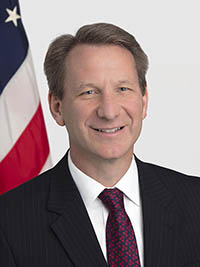The legacy of the National Cancer Act: 50 years later
4 min read
In 1971, President Nixon signed the Nationwide Cancer Act as part of the War on Cancer. In honor of the act’s 50th anniversary, Norman Sharpless, M.D., director of the National Cancer Institute (NCI), shares his ideas on cancer exploration and treatment method, and how each have changed around the earlier 50 years.
What was most cancers like just before the passage of the Countrywide Most cancers Act?
In most cases, most cancers was an automated loss of life sentence. I can think of just one exception that made available true hope. In the 1950s, a group of science leaders uncovered a get rid of for an specially terrible childhood leukemia. The survival charge greater from zero to far more than 80%.
Why could not that extraordinary improve materialize for all cancers? That kind of wondering led to assist for the Nationwide Most cancers Act. At the time, some people considered cancer was a professional medical dilemma that could be solved in about 5 yrs. It was simply just a subject of discovering the right medication. But of study course, most cancers turned out to be a a great deal more challenging challenge.
Why is cancer so challenging to fix?
We now understand that most cancers is unique in between people. In a way, cancers are like snowflakes. Each and every a person is special.
Cancer is not a single condition or even 10, it’s hundreds or 1000’s of conditions. Just about every cancer has its very own therapy and solution. In the earlier, we tried using the similar ineffective cancer medications around and in excess of. Now we’re starting to see genuine innovations on distinct cancers.
We are fully commited to President Biden’s objective to stop the tragedy of cancer that will take liked kinds too quickly. About 600,000 Us citizens die from most cancers every 12 months. So, we have a lot of get the job done to do.
How does huge knowledge engage in a purpose?
We’ve moved away from classic medical trials. We no for a longer period give drug A to 400 people today and drug B to another 400 and assess outcomes. All 800 patients are various, and we can not take care of them in a cookie-cutter way. We connection lots of data resources, from lab stories to coverage promises. Analyzing massive quantities of info will help us have an understanding of most cancers in the true planet. For example, remedies that get the job done in massive, urban hospitals may not work in places with low access to treatment.
How did COVID-19 have an effect on cancer treatment and medical trials?
COVID-19 triggered key delays in therapy and surgical procedures. It substantially diminished screening checks like Pap smears and mammography. But I’m impressed with how the cancer world rallied to minimize the influence of the pandemic. That means obtaining individuals into remedy rapidly and generating up skipped assessments.
Scientific trials are critical to advancing most cancers investigate. NCI enrolls far more than 35,000 contributors yearly. Contributors advantage from accessibility to new therapies. Growing the diversity of our individuals is a priority. This contains bringing trials to individuals and earning them a lot more convenient.
Early in the pandemic, we had to find out how to use telemedicine for clinical trials. We received consent by cellular phone. We mailed drugs. We located treatment closer to dwelling. Clients, caregivers, and clinicians appreciated these modifications. As we go ahead, these lessons will support improve obtain to scientific trials and treatment.
What else can you inform us about cancer investigate these days?
We’re in a golden age. At NCI, we have a lot more investigate thoughts than we can fund. For example, myeloma has at minimum five new techniques to therapy. The challenge is to figure out how to use these approaches.
To make progress in cancer, we need to have to have an understanding of it. The incredible success we see in some cancers builds on a long time of essential research. You cannot skip that stage. Science is shocking and unpredictable. We never know in which the following breakthrough will appear from.
Choose metastatic melanoma, a great achievement story. It experienced a extremely very low survival rate. It may possibly have seemed like practically nothing adjusted for decades. Then, all of a unexpected, we gained new awareness about the immune procedure. And inside five many years, researchers observed a get rid of. That would have not occurred without having the prior 30 many years of challenging perform.
Whilst I have focused on NCI’s work, progress versus most cancers is a Countrywide Institutes of Well being-large hard work. For info about medical trials, patients should really discuss to their health care provider and go to ClinicalTrials.gov.
Pay attention to NCI’s 50th anniversary podcast series on HealthCast
For a near-up glance at earlier and present cancer exploration and innovation, pay attention to this distinctive podcast miniseries: 50 A long time of the Nationwide Most cancers Act. Each and every podcast is about 30 minutes extensive, and subjects incorporate prevention, treatment method, scientific trials, health disparities, and a lot more. Pay attention on Spotify, Apple Podcasts, or wherever you get your podcasts.



